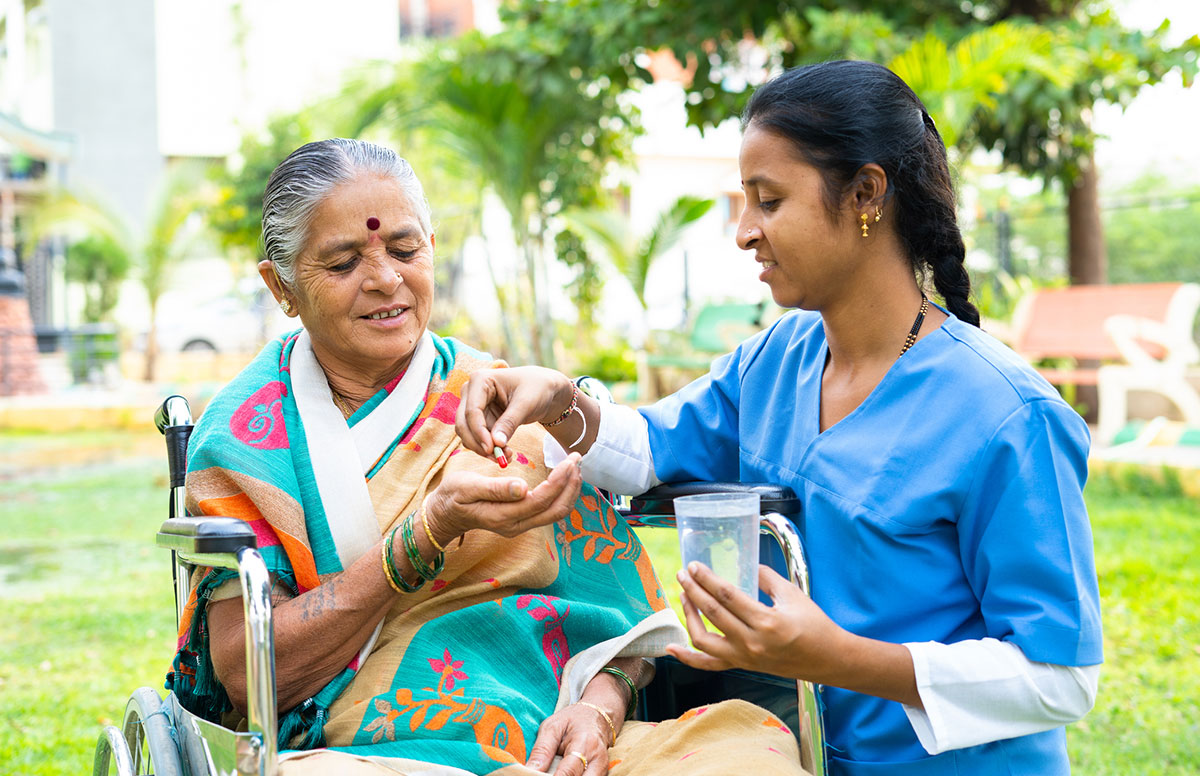Historic Workforce Allocations, Immigration Provisions in Latest Build Back Better Act
The updated version of H.R. 5376, the Build Back Better Act, sent to the House Rules Committee on November 3, maintains most of bill’s previous iterations’ allocations and durations for programs that address the long-term care (LTC) workforce crisis as well as immigration-related provisions.
The bill implements historic allocations that address the workforce crisis aging services providers are experiencing. The funds could be used for implementing plans to strengthen recruitment, retention and career advancement of the long-term care and direct care workforce. The bill also expands the Health Profession Opportunity Grants (HPOG) program, which helps train low income individuals for high demand jobs in the health care industry, and states’ SNFs and non-profit organizations are eligible grantees for the program.
The bill also provides funding to support the behavioral health needs of caregivers of older individuals and targets recruitment for grant programs that lead to hospice education and palliative care contracts, including programs leading to certification as a certified nursing assistant (CNA).
There are two additional positive changes included in the Build Back Better Act: $20 million is allocated for Palliative Care and Hospice Academic Career Awards; and, $500 million (instead of an earlier bill iteration’s $300 million) in funding allocated to carry out nontraditional apprenticeship programs for high numbers of individuals with disabilities or non-traditional apprenticeship populations.
Highlights of the LTC workforce initiatives in Build Back Better Act provisions:
- $1.6 billion for Nursing Home Workforce Training Grants, from fiscal years 2023-2026, for all long-term care providers to address staffing shortages. Funds must be used for wage subsidies, tuition assistance, childcare and transportation assistance, and provided by state entitlement allocations.
- $150 billion Medicaid HCBS Expansion, which allows for a 6% increase in the Medicaid FMAP (and 2% increase during the first 6 quarters), if states agree to implement plans to strengthen and expand the HCBS workforce. Increases in HCBS rates are to be passed through to workers to improve compensation for direct care workers.
- $425 million to expand the Health Profession Opportunity Grants to reauthorize and expand these competitive grants that train low income TANF recipients for high-demand jobs in the health care industry. Home care aides, CNAs, LPNs and nurses are trained through the program.
- $1 billion for Direct Care Workforce Competitive Grants, for the recruitment, training and retaining of direct care workers.
- $30 million for a Direct Care and Caregiving Technical Assistance Center, supporting the direct care worker recruitment, education and training, retention, career advancement and for supporting family caregivers and caregiving activities.
- $40 million to support Unpaid Caregivers Behavioral Health Needs of unpaid caregivers of older individuals and older relative caregivers.
- $20 million for Palliative Care and Hospice Academic Career Awards; $30 million in funding for Palliative Care and Hospice Education and Training; and $20 million for Hospice and Palliative Nursing, to establish a program to award grants and contracts to 22 accredited schools of nursing, health care facilities, programs leading to certification as a CNA.
- $500 million for individuals to carry out nontraditional apprenticeship programs, including serving individuals with disabilities or non-traditional apprenticeship populations
Immigration Policy in Build Back Better Act
The updated version of the Build Back Better Act also maintained the bill’s most recent immigration provisions. These provisions include a reprieve for at least 7 million undocumented people who live in the United States who are seeking legal status and provide them with temporary protections and a work permit. The bill would also assist more than 2.2 million immigrants by implementing a visa recapture program to expedite a pathway to green cards and allocate funds to the USCIS to implement these initiatives.
However, these immigration provisions remain in flux, since they must comply with the “Byrd rule,” which generally prohibits non-spending and non-savings provisions from being included in a reconciliation package. After House consideration of these immigration proposals, the Senate will weigh in on whether they should remain in the bill.
LeadingAge Advocacy Continues
The House of Representatives could vote on the updated Build Back Better bill as early as today. LeadingAge continues our advocacy on the best possible outcome on this historic package and we are urging advocates to ask House, Senate and White House negotiators to protect the bill’s Medicaid HCBS and workforce investments and increase the bill’s funding for HUD’s Section 202 Supportive Housing for the Elderly program. See our Action Alert here.

Most Recommended
October 15, 2025
 Shutdown Week Three: Impact of Ongoing Closure on Affordable Housing
Shutdown Week Three: Impact of Ongoing Closure on Affordable Housing
February 03, 2026
Fiscal Year (FY) Funding 2026
October 07, 2025
Immigrant Workforce Matching Program Brings Workforce Relief
Recently Added
February 04, 2026
 Colleagues on the Move, February 4, 2026
Colleagues on the Move, February 4, 2026
February 02, 2026



